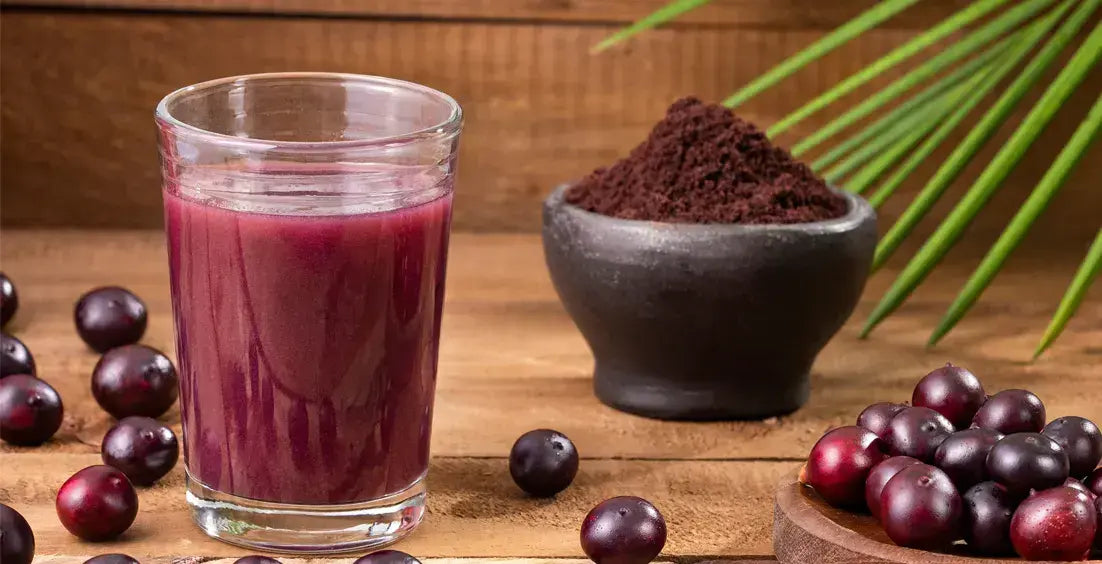5 Signs You Need a Collagen Supplement for Bone and Joint Support
Collagen is an essential component of the body that helps maintain healthy joints and bones. But do collagen supplements actually support bone strength, joint health, and mobility? Learn more.

Collagen is the most important protein found in our body, helping to keep bones and joints strong and supple. As the skeletal system's basic building block, it's essential for people who look for the best collagen for bone and joint health to know its importance.
As we age, our natural collagen production begins to decline, typically starting in our mid-20s. This gradual decrease can lead to various health challenges, particularly affecting our mobility and overall skeletal strength. Many people don't realize they might benefit from a collagen supplement for bones and joints until they start experiencing noticeable symptoms.
Understanding the warning signs that show you'll need supplementation will help take proactive steps in maintaining healthy joints and bones. So, here are five primary indicators that might suggest you might need to add top collagen for joint and bone support to your daily routine:
1. Recurring Joint Pain or Stiffness
When your body's natural collagen levels decrease, the cartilage that cushions your joints can begin to wear down. This degradation often leads to increased friction between bones, resulting in discomfort and stiffness, particularly in weight-bearing joints like knees and hips.
This stiffness is noticed by many, especially in the morning or after a long period of inactivity. You might find yourself taking longer to "warm up" your joints before daily activities, or experience increased discomfort during exercise or regular movements.
Finding the best collagen for strong bones and joints will reduce inflammation and supports your body's natural joint cushioning system. Research studies in recent times have proven that the intake of supplements may be beneficial in lowering joint pain and enhancing mobility among those experiencing age-related joint issues.
2. Low Bone Density or Highly Fractured Bones
Collagen is the blueprint for calcium deposits in your bones. It is imperative to maintaining bone strength and density. Imagine collagen being the flexible framework that calcium and other minerals use in building strong, resilient bones. When the levels are low, you may get:
- Increased susceptibility to fracture even from minor impacts, and
- Slower bone healing, especially in joints like wrists and hips
- Decreased general strength of the bones that might lead to posture issues
- Increased frequency of bone injuries due to simple activities
- Sudden, unexplained pain or tenderness in bones
Recently, studies have revealed that up to 90% of bone matrix proteins are collagen. Studies have also revealed that people with lower levels of collagen usually experience more accelerated bone loss, especially after age 50.
To get the best benefit, experts advise taking collagen supplements for maintaining joint and bone health together with other supplements that support bone, including calcium and vitamin D. This multi-supplement practice ensures that your body will have everything it needs for healthy, strong bones.
3. Lower Flexibility and Mobility
Collagen fibers are crucial for the elasticity of your joints and connective tissues. You will see a drastic decline in the range of motion and overall flexibility when the fibers run out.
Bending down to tie your shoes, reaching for something on high shelves, or even climbing stairs may all become an ordeal. It can easily impact your quality of life and daily activities.
These changes are often gradual, making them difficult to notice until they begin affecting your daily routine considerably.
4. Slow Recovery from Injuries
Collagen plays an important role in the tissue repair and recovery process - from muscle tears to sprained ligaments. Without this knowledge, one who is looking for the best collagen for strong bones and joints should know that when your body lacks enough collagen, the following can be experienced:- Longer healing times on minor injuries, sometimes weeks past the expected time
- Long recovery periods after exercise, experiencing persistent muscle soreness.
- Increased muscle soreness and joint discomfort, even after moderate activity
- Taking longer to recover from sprains and strains
- History of repeated injuries in previously injured areas
- Tendons and ligaments are weak during the recovery process
Medical research has shown that collagen supplementation is essential in supporting the natural healing processes of the body through the provision of the raw materials needed for the repair of tissues. Its benefits are especially useful to athletes and active individuals due to its ability to maintain the integrity of connective tissues, leading to faster recovery.
5. Obvious Changes in Skin, Hair, or Nails
While our focus is primarily on bones and joints, external changes can often signal internal collagen depletion. How elastic your skin is and how strong your nails and hair are all indicate how healthy your connective tissues are.
It is found in 2024 research, that with reduced levels of collagen, your skin may begin to appear less firm and sag easily. Your nails could grow brittle, and your hair may lose its strength and thickness.
Most of the visible changes happen to your bones and joints because these changes happen internally due to the reduced levels of collagen.
READ MORE - Multi-Collagen Supplement for Skin Health
How Collagen Supplements Can Help?
The science behind collagen supplementation reveals a fascinating process of cellular renewal and tissue support. When you consume high-quality collagen supplements, they undergo a specific pathway that maximizes their effectiveness for bone and joint health.
Modern supplements with collagen for maintaining joint and bone health utilize advanced bioavailability techniques that help your body efficiently absorb and utilize collagen peptides. These supplements work through multiple mechanisms:
- Cellular Activation: Activate your body's natural collagen-producing cells, and fibroblasts to produce more.
- Direct Provision: Deliver amino acids that your body must have to synthesize new collagen.
- Protective Benefit: Help prevent the breakdown of the existing collagen.
- Synergistic Interactions: Synergistically work with your body to optimize tissue health.
- Enhancers of bioavailability, vitamin C, hyaluronic acid.
- Peptide size: Generally, a smaller peptide will be more readily absorbed.
- Source quality and processing methods.
- Complementary ingredients that support absorption and effectiveness.
ALSO READ - Is Collagen Safe to Take?
Conclusion
The signs we have discussed, such as joint pain, decreased bone density, reduced flexibility, slow recovery, and visible changes in skin and nails, are all significant indicators of your body's collagen needs. Understanding these signals can help you take proactive steps toward maintaining your skeletal health and overall wellness.
Taking action through the right supplementation with the best collagen will improve your lifestyle significantly. Users often note improvements in mobility, reduced discomfort in their joints, and faster recovery times within months of steady use. Don't forget that supplementation is not merely about solving immediate problems, but rather it's investing in your long-term health and mobility.
It's important to consider a consultation with a healthcare provider to devise a comprehensive approach to bone and joint health, incorporating the right supplementation, nutrition, and exercise. With this support, you can keep an active, comfortable lifestyle while protecting your skeletal system for years to come.
About WOWMD Staff
The WOWMD Staff category features a diverse team of writers, each bringing specialized knowledge in areas such as nutrition, fitness, wellness, and more. Articles in this category benefit from insights provided by multiple experts. All content is peer-reviewed and regularly updated to ensure compliance with our editorial standards.
References
- Collagen Supplementation for Joint Health: The Link between Composition and Scientific Knowledge https://pmc.ncbi.nlm.nih.gov/articles/PMC10058045/
- Decreased Collagen Production in Chronologically Aged Skin https://pmc.ncbi.nlm.nih.gov/articles/PMC1606623/
- UC-II Undenatured Type II Collagen for Knee Joint Flexibility: A Multicenter, Randomized, Double-Blind, Placebo-Controlled Clinical Study https://pmc.ncbi.nlm.nih.gov/articles/PMC9232232/
- Collagen-based formulations for wound healing: A literature review https://www.sciencedirect.com/science/article/abs/pii/S0024320521010833
- Efficacy and Safety of Skin Radiance Collagen on Skin and Hair Matrix: A Placebo-Controlled Clinical Trial in Healthy Human Subjects https://pmc.ncbi.nlm.nih.gov/articles/PMC10942009/
Evidence Based Research
This WOWMD content has been reviewed, as well as checked for facts, so as to guarantee the best possible accuracy.
We follow a strict editorial policy, especially related to the sources we use. Our articles are resourced from reputable online pages, with research drawn from academic institutions and peer-reviewed studies. You can click on the numbers in the parentheses (1, 2, etc.) and check out those references.
The feedback form on this page can be used to report content that is not accurate, up-to-date or questionable in any manner.
We do NOT intend for the information presented through our articles to replace the medical relationship with a qualified physician, nor does it represent specialized advice.


 Skin Detoxification Bundle
Skin Detoxification Bundle Complete Weight Loss Bundle
Complete Weight Loss Bundle Heart Care Bundle
Heart Care Bundle Better Immunity Bundle
Better Immunity Bundle  Men's Immunity & Prostate Health Bundle
Men's Immunity & Prostate Health Bundle Stress + Energy + Wellness Combo
Stress + Energy + Wellness Combo  Energy Booster Combo
Energy Booster Combo Natural Skin Care Bundle
Natural Skin Care Bundle Workout Supplements Combo
Workout Supplements Combo Cognitive Health & Vision Combo
Cognitive Health & Vision Combo Joint Health Support Combo
Joint Health Support Combo

















 By WOWMD Staff
By WOWMD Staff